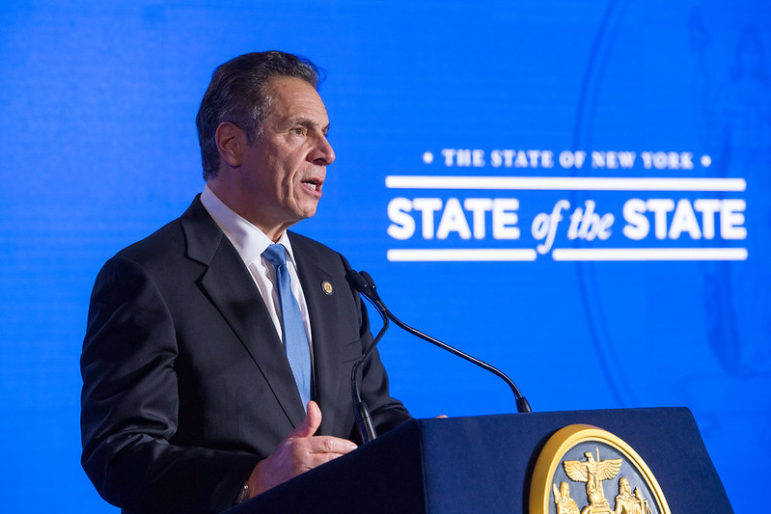“While Cuomo’s plan acknowledges the social equity imperative of legalization, it allocates only $100 million in tax grants to communities most harmed. That’s a step – but it’s not enough.”

Darren McGee- Office of Governor Andrew M. Cuomo
Gov. Cuomo announced his plans to create an adult-use cannabis program at his State of the State address in January.As Gov. Andrew Cuomo goes back to the drawing board on his plan for the statewide legalization of recreational use of cannabis, New York lawmakers are finally coming to the understanding that any plan for legalization is incomplete without crystal clear provisions stating how the industry will both address and rectify the wrongs of cannabis criminalization.
The prohibition of cannabis has played a starring role in the painful history of racial injustice in our criminal justice system. In order for legalization to make a material difference in the lives of those most impacted – those disproportionately targeted and punished for cannabis charges – the state must make sure the tax revenue raised from legalization directly benefits the communities most harmed by the drug war.
Legalization is an opportunity to address the inequities that run so deep in our city. Per the Drug Policy Alliance, “[c]ombined, New York’s Black and Latino populations account for a little more than a third of the state’s total population, and drug use and drug selling occur at similar rates across racial and ethnic groups. Yet, nearly 85% of the people arrested annually for marijuana possession in New York are Black or Latino.” Especially with Black and brown communities suffering disproportionately under COVID’s toll, any plan for legalization of cannabis must be paired with a comprehensive plan for social equity.
The potential for reinvestment is staggering. Legalizing cannabis could create 60,000 jobs, catalyze $3.5 billion in economic growth, and raise $300 million in tax revenue. But while Cuomo’s plan acknowledges the social equity imperative of legalization, it allocates only $100 million in tax grants to communities most harmed. That’s a step – but it’s not enough. To truly address the wrongs of the past, communities need a greater share of the tax revenue – not a fraction of it.
 CityViews are readers’ opinions, not those of City Limits. Add your voice today!
CityViews are readers’ opinions, not those of City Limits. Add your voice today!
Meaningful reinvestment in communities might look like expanded afterschool enrichment and vocational training programs, more funds for educational equity initiatives – such as Wi-Fi access for all or antiracism programs in schools – or the allocation of licenses, training and capital dollars specifically for entrepreneurs of color. Revenue should also aim to achieve health equity, in the form of expanded neighborhood health services, behavioral health and addiction programs, free clinics, and more. Cannabis use is, after all, a health issue – not a legal or criminal one. Addressing these root issues will be key to making legalization count.
The communities who have suffered the most under the current system have the most to gain from legalization, and they must have a seat at the table where these decisions are made.
Legalization means little if the lives of those historically criminalized remain in the balance. New York’s proposal increases penalties for those selling any amount of cannabis to those under the age of 21 from a misdemeanor to a felony. Harsh penalties like this pave the way for further criminal justice system involvement and defeat the purpose of legalization. We can’t let legalization mean higher penalties for other infractions.
Just look to New Jersey, where the recent legalization bill stalled after lawmakers clashed over penalties for young people under 21. Legalization efforts must reexamine prison sentences for cannabis possession and provide work force pathways for those who have been previously incarcerated for possession – not provide further opportunities for the criminalization of our Black and brown community members.
A legal cannabis industry could either begin to transform our state’s racist criminal justice system or continue the cycle of oppression that cannabis penalties have for so long been a part. If the time for legalization is now, lawmakers, please know: there’s no room for half measures. If we are going to legalize, we must do it right.
Michelle Yanche is the executive director of Good Shepherd Services, one of the largest youth services agencies in New York City, serving over 30,000 families each year.







